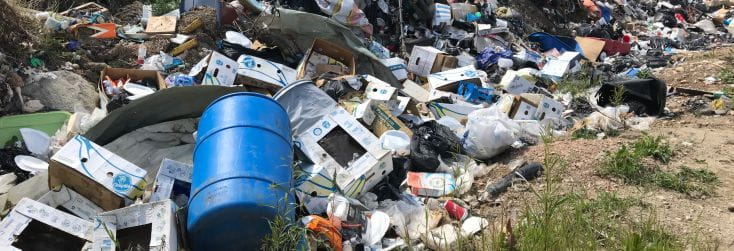Illegal dumping often includes food waste or other items that can attract and negatively impact wildlife.

Attractants found in household trash or other waste can lead to the creation of habituated and food-conditioned animals. Animals that become habituated, depending on the species, can become a risk to human safety and may need to be euthanized. Other waste items including plastic bags, pop can rings, cords, etc. can entangle wildlife or be ingested, leading to injury or other complications.
The Wildlife Regulations, 1981, prohibit feeding or leaving attractants for bears, wolves, cougars and coyotes. This regulation helps alleviate increased concerns related to dangerous wildlife gaining access to human-sourced foods. Illegal dumping and failure to manage attractants can result in fines under the regulations.
It's important we all do our part to keep wildlife and people safe. Keeping waste products in proper containers and using licensed landfills limits the creation of habituated wildlife, keeps lakes and rivers clean and helps ensure the overall health of the environment.




